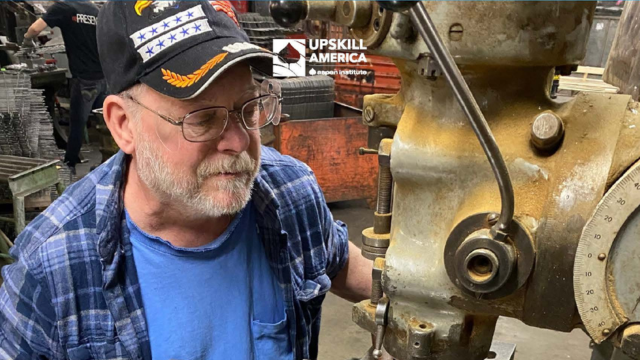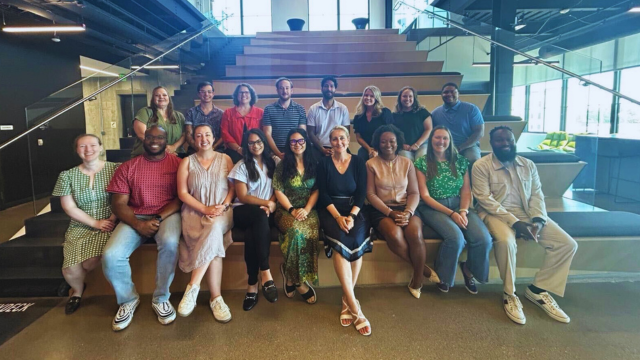The Role of Competency-Based Education in Strengthening Trust Between Employers and Higher Education

Haley Glover
Senior Director

Amber Garrison-Duncan, Ph.D.
Executive Vice President and Chief Operating Officer
Across the United States, cracks are widening between higher education and the labor market.
Employers express doubts about graduates’ job readiness and are increasingly looking for evidence of applied skills, while colleges and universities face mounting pressure to prove the value of their degrees. According to recent Lumina Foundation-Gallup research, most Americans believe that college degrees are valuable, but this perceived value is shrinking year over year. Meanwhile, even as the economy shifts, millions of jobs remain unfilled, in part due to misalignment between candidate skills and employer needs.
Amidst this tension, Competency-Based Education (CBE) is a promising bridge, a model grounded in transparent outcomes, flexible pathways, and authentic demonstration of skills. By prioritizing what a learner knows and can do over how much time they spend in a classroom, CBE offers a way to rebuild trust between employers and higher education institutions.
At its core, CBE introduces a different value proposition of education, including:
- Co-creation with employers the comprehensive vision for what students will be able to do upon mastery of competencies, and what employers can expect from graduates from day one on the job.
- Potentially faster time to completion without sacrificing quality — students progress at the speed of mastery rather than course loads and credit hours.
- Driving more personalization of education and learning, recognizing what people already know and can do. Then facilitating learning for what is left to master.
Employers are increasingly asking for candidates who can demonstrate their knowledge, focusing less on degrees and credentials — the packaging of competencies — and more on competencies themselves and evidence of demonstration. They are using Skills First practices that can level the playing field for people without four-year degrees, but who have the ability to do the job. The technologies employers use to find candidates and manage their talent are increasingly able to hold and utilize skills data as well as performance evidence or demonstrations of those skills. And significant efforts to create portable, individualized records of skills — Learning and Employment Records (LERs) — are creating the infrastructure for the scaled ability to use skills information and demonstrations in decision-making.
But is there demand from employers for more and improved CBE programming? Do employers know what CBE is? And would they trust the outcomes of postsecondary education more if competencies were centered? We had the opportunity to talk to employers directly about their understanding of CBE and how they viewed skills and credentials validated by CBE institutions. This brief describes our findings.
About UpSkill America
UpSkill America, part of the Economic Opportunities Program, supports employers and workforce organizations to expand and improve high-quality educational and career advancement opportunities for America’s front-line workers. Connect with us on LinkedIn and learn more at upskillamerica.org.
About the Economic Opportunities Program
The Aspen Institute Economic Opportunities Program advances strategies, policies, and ideas to help low- and moderate-income people thrive in a changing economy.
Join Our Mailing List
To receive occasional emails about our work — including new publications, commentary, events, fellowships, and more — join our mailing list.
Connect on Social Media
For news and updates every day, connect with us on the social media platform of your choice.







